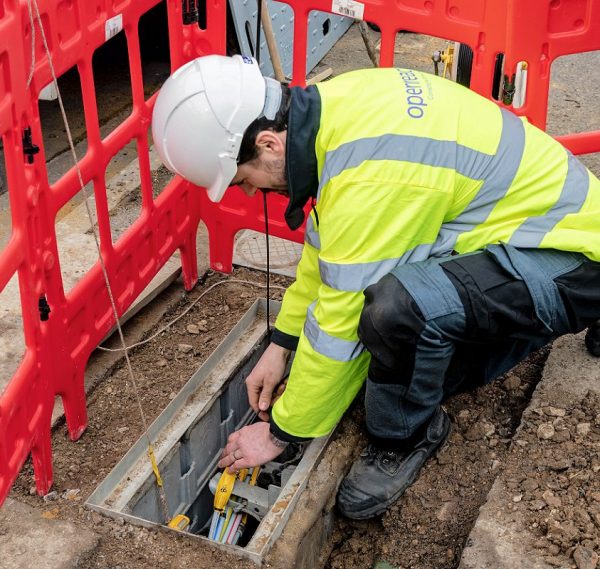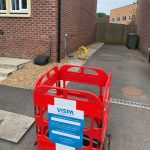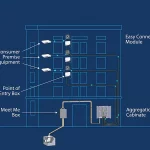Ofcom UK Soften Openreach Rules for IP and FTTP Migration Trials

Ofcom are consulting on a new proposal that could remove a few key pieces of regulation from Openreach (BT), which is intended to support their analogue telephone (WLR) to digital voice (VoIP) and copper to “full fibre” (FTTP) Exchange Upgrade trials (here and here) in Mildenhall (Suffolk) and Salisbury (Wiltshire) respectively
At present Openreach is currently investing £8m to roll-out FTTP broadband to c.20,000 premises in Salisbury by April 2020, which will effectively give them universal coverage of the city. As such the area has been chosen for their Exchange Upgrade trial (i.e. switching off copper and going full fibre) and under the current plan they intend to put a “stop sell” on new copper services from December 2020 (May 2021 for analogue phone in Mildenhall).
As part of the above effort Openreach will also offer a low speed 0.5Mbps FTTP tier specifically to support voice-only customers (here) and Ofcom will require them to offer a regulated 40Mbps (10Mbps upload) broadband product to support consumers being migrated away from older copper ADSL lines.
Advertisement
Both of the aforementioned trials are set to run until December 2022 or later and Ofcom has said that they expect Openreach to cover an entire exchange area (100%) with “fibre” (they include both FTTP and G.fast into this specific definition) before they start to move the regulatory focus away from copper (the transition period for this will take several years).
As part of this Openreach has informed Ofcom that they wish to amend their wholesale charges for the Salisbury and Mildenhall trials to “encourage early participation … These changes include waiving connection charges and maintaining wholesale rental charges at the legacy service rate for one year after migration.”
The regulator’s current rules would prohibit some of this and so Openreach has requested that a few of the rules be waived to facilitate their trials.
Brief Summary of the Proposal
We are proposing to limit the application of three of our rules to enable Openreach to vary its charges for the Salisbury and Mildenhall trials. Our proposed amendments are:
• For both trials, to remove the rules which require Openreach not to unduly discriminate when providing network access, including the requirement to provide identical wholesale services to all telecoms providers (an obligation known as ‘equivalence of inputs’). These proposals would also have the effect of dis-applying the obligation to provide copper-based broadband services at uniform prices across the UK.
• For the Salisbury trial, to remove the rule which specifies that in areas where Openreach has deployed full-fibre and has withdrawn its copper-based broadband services, it must offer a 40 Mbit/s download, 10 Mbit/s upload (40/10) full-fibre based broadband service at the same regulated price it charges for the equivalent copper-based service elsewhere in the UK.
These proposals would apply only to certain charges offered by Openreach for the Salisbury and Mildenhall trials and for a limited time. Our rules would continue to apply in full elsewhere in the UK.
The consultation itself closes on 6th January 2020 and Ofcom then intend to publish their decision later in that same month. Details here.
Advertisement
UPDATE:
Just for a little more background on that request concerning the 40Mbps FTTP tier, this is what the consultation says:
Openreach’s Reasoning
Openreach considers that elements of the Trials Offer would be contrary to certain obligations imposed on BT in the 2018 Wholesale Local Access (WLA) Market Review. Those elements are:
• In the Mildenhall trial, customers migrated from WLR/SMPF or MPF services would be paying lower rental charges, for the term of the offer, for the SOGEA 40/10 service than customers of the same service provided elsewhere. This would breach the obligation imposed on BT to not apply different prices in different geographic areas.
• In the Salisbury trial, customers migrated from WLR/SMPF or MPF would be paying lower rental charges for the FTTP 40/10 service than for the FTTC 40/10 service for the term of the offer. This would breach the obligation imposed on BT to provide the 40/10 FTTP at the same rental charge as the FTTC 40/10 (and MPF) service where FTTC is not available at a location.
• In both trials, customers would be paying different charges for the same service, since the migrated customers would continue to pay the rental charges for the legacy services from which they have migrated for one year post migration. This would breach the obligations imposed on BT to not discriminate unduly against Third Parties when providing network access and the obligation to provide network access on an Equivalence of Inputs basis.
Accordingly, Openreach has requested that we waive the relevant regulations for the duration of the Trials Offer (SMP Conditions 4.1, 4.4, 5 and 7B.5 (a)(i)).
Mark is a professional technology writer, IT consultant and computer engineer from Dorset (England), he also founded ISPreview in 1999 and enjoys analysing the latest telecoms and broadband developments. Find me on X (Twitter), Mastodon, Facebook, BlueSky, Threads.net and Linkedin.
« SSE Enterprise Telecoms and JISC Launch 100Gbps Midlands Fibre Network
Wales Considers Spending More on Mobile than Fixed Broadband »






















































Comments are closed